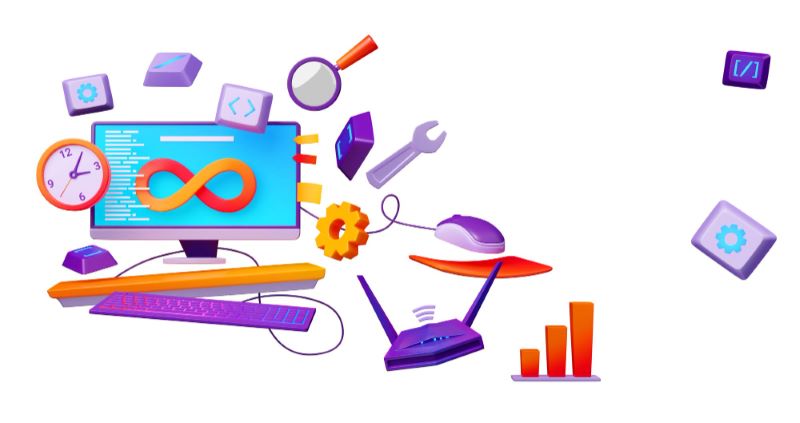SERP Scraper: Automating Search Engine Results Collation

Imagine life without Google. You can’t? Me neither. Search engines like Google, Yahoo, Bing, etc. are a very vital part of our internet and online experience. Now, collating search results from search engines used to be very simple. You entered a query, got your results, and picked the answer most related to your query. However, over the years, search engines have evolved in a bid to try to decipher search intent from user queries and provide more accurate answers. This means a wider array of results are being provided for queries, coming in the form of featured snippets, paid ads, and the expected organic search results. The increasing complexity of responses provided to queries by search engines has, therefore, made traditional methods of collating search results nearly obsolete, as most times, what you need is no longer limited to the first and second pages. That is where a SERP scraper comes in.
Scraping is basically the act of collating data from the internet. However, using a SERP scraper means employing automated bots that parse through the HTML code of the SERP and extract data from as many pages as you need without you having to manually extract the data. The advent of SERP scraping has totally changed the way you can access search results and made it easier for you to make use of search results at an industrial scale.
In this article, we’ll explore the way a SERP scraper works and all the many ways you can apply this technology to take better advantage of search engines for data collection. We’ll also take a look at using a SERP API to automate the flow of search engine data directly to your data analytics software for easy processing. Feel free to skip around with the table of contents below:
Table of Contents
How Does a SERP Scraper Work?
SERP (Search Engine Result Pages) refers to all the pages of results you get whenever you enter a query into a search engine. Let’s take Google as a case study. When you enter a search query into Google, you get several pages of results, as many as a hundred pages sometimes. These are the SERPs. Now typically, a Google SERP will have two forms of results: the Organic Search Results and Paid Search Result.
The Organic Search Result is determined by Google itself using a solid array of algorithms. Also, a few factors such as; ON/OFF page SEO signals, site-loading speed have been an added advantage for ranking. An Organic search includes the Page title, page URL, and meta description. At times, Google could also consist of publication or site links if they find it of great need.
A Paid Search Result, as you would have seen on several occasions is marked with a small “ad” icon at the top left corner of the snippet. Google is not against scraping but has taken several measures to make the processing of web and SERP scraping a challenging task, such as the introduction of captcha and error pages. Therefore, it is usually a task of immense proportions to extract data from search engines in large volumes. Since search engine data represents a very valuable source of data for personal, business, educational and industrial needs, it is therefore very important to overcome this challenge and find a way to obtain search engine results at scale. SERP scrapers help you do this.
AS we said earlier, scraping is basically the act of extracting data from the internet. However, using web scraping bots known as “crawlers” or “spiders”, you can automate your methods of collecting data from the internet. Web scraping bots work by parsing through the HTML code of a web page and extracting data according to preset parameters. A SERP scraper is one such bot. With a SERP scraper, you can totally change the way you access search engine results and make your SERP data collection a lot faster and more efficient.
Using a SERP API

To make your SERP data collection even better and faster, you can employ the use of a SERP API. An API (Application Programming Interface) is software that acts as a communication interface between disparate pieces of software, helping them to transfer data and functionality without exposing the underlying code necessary to make the functions work.
With the aid of a SERP API, you can set up a data collection funnel to scrape SERP data and funnel it directly into your database or data analytics software for immediate processing. This means to can bypass the manual inputting of data into your database and go straight to extracting insights from the data you have collected. Also, with the aid of a SERP API, you can set automated scraping sessions to extract data at regular intervals without requiring your manual scraping commands. This makes it easy for you to stay up-to-date with data that is regularly updated such as SEO rankings.
Now that we understand how a SERP scraper and SERP API work, let’s look at a few reasons why you might want to scrape SERPs. I’m sure you’ll come across a few you haven’t thought of.
Why Do You Need to Scrape Search Results?

Basically, there are various reasons why you would want to perform a SERP scrape which include; to increase your web ranking, to check out your product’s visibility compared to your competitors. You could also use it to check for your local business visibility listing on search engines.
SEO
With how valuable online traffic, especially that generated from search engines, has become to businesses, SEO is a key aspect of your business strategy that you can’t neglect. By scraping SERP data, you can identify your SEO rankings and that of your competitors. You can also find out which keywords your competitors are ranking for that you are not, or the most popular keywords in your niche. SERP data can also tell you which aspects of your technical SEO efforts are working and which ones need improvement.
As we said earlier, one of the forms of results you get from SERPs is paid ads. With SERP scraping, you can easily identify which ads are on the first page for the keywords you would like to rank for. You can also find out which keywords have a high search volume and low bid value that you can easily bid for to create your own paid ads on search engines. Scraping would help you as a business owner monitor how your competitors are advertising their products, what products are viewed by consumers, and how they respond to these products. In so doing, you can take proper feedback and apply them to your own brand.
Obtaining other forms of data
While we have had a focus on Google due to its status as the most popular search engine, there are many other websites that offer inbuilt search engines, where you can use a SERP scraper to obtain data faster. Job posting websites, for example, have an inbuilt search engine that you can use to search for specific types of jobs. With a SERP scraper, you can easily collate search results, making it easier to peruse the data and identify the types of job you are searching for.
Carrying out Research
Whether personal or business research, one of the first places to start when carrying out any form of research is a search engine. With the aid of a SERP scraper, you can greatly speed up the rate at which you can obtain data for your research purposes and even make it easier to get all the data you need together in one place.
The Best Online SERP Scraper
There are several ways you can apply a SERP scraper to collating data from search engines and there are several types of SERP scrapers focusing on different types of data from different types of search engines. But one of the best SERP scrapers out there is Scraping Robot’s web scraping software. At Scraping Robot, we’ve dedicated our time and effort to create a web scraping software that can help you access and collate data from absolutely any website (and search engine) on the internet. Coupled with our scraping API that can interface with any of your data analytics software, you can easily extract data from search engines, like Google, Yahoo, Bing, etc., and forward it directly to your database or analytics software. We have several scraping modules available and if we don’t have a module for your needs, our developers are on standby to create a custom module for you.
Conclusion

Using a SERP scraper has totally changed the way you can access and collate data from search engines and using Scraping Robot’s web scraping software, you never have to stress over how to collect data in large volumes from search engines.
The information contained within this article, including information posted by official staff, guest-submitted material, message board postings, or other third-party material is presented solely for the purposes of education and furtherance of the knowledge of the reader. All trademarks used in this publication are hereby acknowledged as the property of their respective owners.
